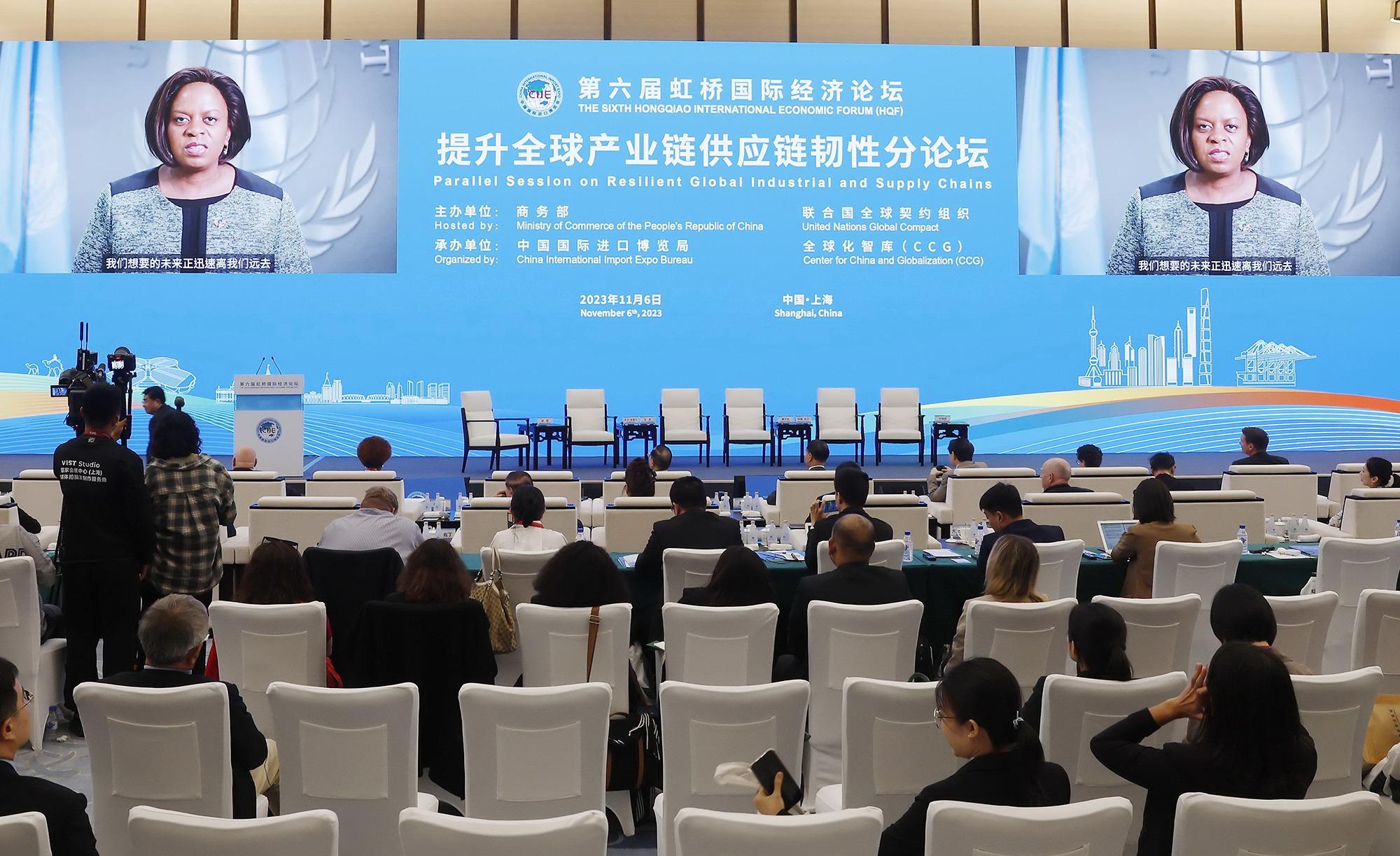 A view of the sixth Hongqiao International Economic Forum in Shanghai. (PHOTO / CHINA NEWS SERVICE)
A view of the sixth Hongqiao International Economic Forum in Shanghai. (PHOTO / CHINA NEWS SERVICE)
The resilience of China's industrial chain ranks at the forefront globally, especially emerging sectors like new energy vehicles that lead the world, according to a report released on Monday at the sixth Hongqiao International Economic Forum in Shanghai.
The report, which analyzes the industrial chain resilience of 38 world economies, pointed out that the United States and China topped other markets with a resilience index of 0.715 and 0.611, respectively.
Germany, Japan and Singapore followed, with an industrial chain resilience index of 0.374, 0.369 and 0.353, respectively.
South Korea, the United Kingdom, Sweden, Israel and France are also among the top 10.
In terms of talent and innovation, two important drivers of maintaining industrial resilience, China had a general score of 0.213. The United States topped with 0.277, while Israel ranked third with 0.173.
Zheng Jinlian, deputy director and research head of the Center for China and Globalization, a government think tank, said: "China's sound performance on industrial chain resilience is mainly due to its super large market and most comprehensive industrial chain structure."
In recent years, China has also vigorously promoted the high-quality development of its industries by filling gaps in the industrial chain, upgrading traditional industries, and establishing emerging industrial chains, Zheng said.
"Notably, in terms of new industrial chains, China has leveraged its resource and market advantages to optimize emerging industries such as NEVs and next-generation information technology," she said.
According to the report, China has gained some momentum in the integrated development of capital, talent and innovation, all of which improve the resilience of the NEV industry chain.
In capital, for instance, global investments in innovative technologies related to NEVs exceeded $100 billion last year, of which China accounted for 30 percent.
Yi Xiaozhun, former deputy director-general of the World Trade Organization, said: "The booming development of economic globalization is actually accompanied by a stable global industrial chain. They are intertwined with each other and have enabled the world to enjoy super-long high economic growth and low inflation for 30 years."
However, some developed countries are now intervening in the global industrial and supply chains, which have been operating well for many years, and forcing the global supply chains to be localized and self-sufficient in their own countries, Yi said.
"Although it may bring short-term political benefits to a small number of politicians, it will definitely increase the operating costs of multinationals, and will not make their industries safer," he said.
Therefore, Yi said all major economies should rationally balance the relationship between security, openness and development in the face of the current risky global economic downturn.
"Economies should abandon the zero-sum mindset and return to multilateral cooperation under the WTO framework to jointly maintain open, stable and resilient global industrial and supply chains," he added.
Ueda Toshihiro, vice-president of the Japanese Chamber of Commerce in China, said, "For Japanese multinationals, it is impossible to decouple from China as many of its supply chains have been established for three to four decades."
Ueda, who is also executive director of AGC Co Ltd, said China's role on the global stage is changing — from one of the world's largest consumption markets to a powerhouse of scientific innovation.
He said: "Such change enables us to build a wider supply chain, including material purchasing, production and sales, all in China. Now, AGC has established its own research and development center and technology center in the country.
"For multinationals, to establish a well-rounded global industrial chain, 'open' is the keyword. Companies should find their strengths and complement each other's advantages for better growth."


